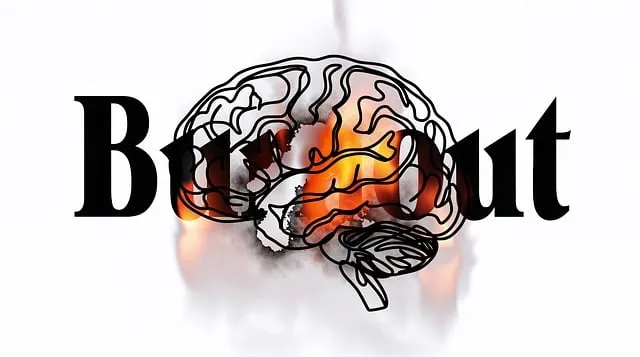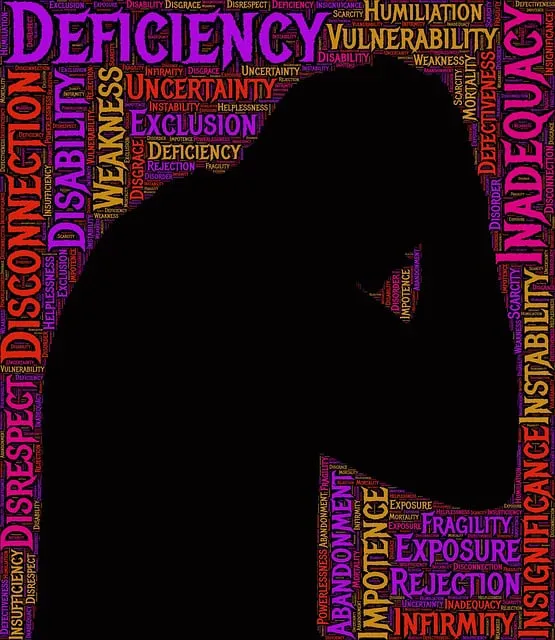Highlands Ranch Kaiser Permanente (HRKP) psychiatry services stand out for their comprehensive harm minimization planning, utilizing advanced risk assessment techniques and evidence-based strategies. Through detailed evaluations of hazards in various settings, HRKP's mental health professionals identify areas needing enhanced safety measures. Techniques like Stress Management Workshops, cultural competency training, and conflict resolution empower healthcare providers to manage stress, foster sensitivity, and resolve conflicts constructively. This holistic approach, reflected in top Highlands Ranch Kaiser Permanente psychiatry reviews, combines accurate risk assessment, tailored self-care practices, stigma reduction education, and collaborative therapy sessions. HRKP's innovative practices, including Emotional Intelligence training, self-care initiatives for staff, and Mental Illness Stigma Reduction Efforts, prioritize patient safety and long-term mental health stability. A dynamic, continuous improvement approach ensures that the facility stays at the forefront of psychiatric care, as evidenced by its positive Highlands Ranch Kaiser Permanente psychiatry reviews.
In today’s healthcare landscape, risk assessment and harm minimization planning are paramount. This comprehensive guide explores essential strategies for ensuring patient safety, drawing insights from leading institutions like Highlands Ranch Kaiser Permanente. We delve into the critical role of psychiatry in identifying and mitigating risks, highlighting successful approaches that integrate clinical expertise with systematic planning. Key components of effective harm minimization plans are unveiled, emphasizing continuous improvement through regular reviews and updates. Psychiatry reviews and best practices from Highlands Ranch Kaiser Permanente offer valuable lessons for healthcare providers worldwide.
- Understanding Risk Assessment: A Fundamental Step in Harm Minimization
- The Role of Psychiatry in Identifying and Mitigating Risks
- Highlands Ranch Kaiser Permanente: A Comprehensive Approach to Patient Safety
- Key Components of a Successful Harm Minimization Plan
- Continuous Improvement: Regular Reviews and Updates for Effective Risk Management
Understanding Risk Assessment: A Fundamental Step in Harm Minimization

Understanding risk assessment is a fundamental step in harm minimization planning. It involves meticulously evaluating potential hazards and their likelihood to cause harm within various settings, including healthcare institutions like Highlands Ranch Kaiser Permanente psychiatry clinics. By thoroughly analyzing factors such as patient history, environmental risks, and procedural complexities, mental health professionals can proactively identify areas that require enhanced safety measures. This process not only enables effective prevention strategies but also informs the development of tailored interventions aimed at mitigating potential adverse outcomes.
Incorporating techniques like Stress Management Workshops Organization, Healthcare Provider Cultural Competency Training, and Conflict Resolution Techniques into harm minimization planning further strengthens risk assessment. These initiatives empower healthcare providers to navigate challenging situations with enhanced skills in managing stress, fostering cultural sensitivity, and resolving conflicts constructively. Such proactive measures ultimately contribute to creating safer environments where patients receive compassionate care, and potential harms are minimized, reflecting the commitment of organizations like Highlands Ranch Kaiser Permanente to delivering high-quality mental health services.
The Role of Psychiatry in Identifying and Mitigating Risks

Highlands Ranch Kaiser Permanente psychiatry services play a pivotal role in identifying and mitigating risks associated with mental health concerns. Psychiatrists are trained to delve into complex psychological landscapes, where they employ evidence-based practices to assess and understand individual risks unique to each patient. By integrating advanced assessment tools and clinical expertise, these professionals can accurately identify potential hazards that may disrupt one’s well-being.
Moreover, the psychiatry department at Kaiser Permanente Highlands Ranch focuses on empowering patients with confidence-boosting self-care practices tailored to their specific needs. Through individualized therapy sessions, education on mental illness stigma reduction efforts, and collaborative planning, they enable individuals to navigate challenges effectively. This holistic approach not only mitigates risks but also fosters resilience and promotes long-term mental health stability.
Highlands Ranch Kaiser Permanente: A Comprehensive Approach to Patient Safety

Highlands Ranch Kaiser Permanente is renowned for its comprehensive approach to patient safety and care. The healthcare facility prioritizes harm minimization by implementing robust risk assessment strategies, focusing on both clinical and non-clinical areas. This includes regular reviews of patient records and incident reports to identify potential risks and implement preventative measures. For instance, the psychiatric department has pioneered innovative practices centered around Emotional Intelligence (EI), integrating EI training for staff to enhance patient interactions and outcomes.
The hospital also fosters a culture of self-care practices among its employees, acknowledging that mental well-being is integral to delivering quality care. Additionally, Highlands Ranch Kaiser Permanente actively engages in Mental Illness Stigma Reduction Efforts, ensuring a supportive environment for patients and promoting understanding within the community. These initiatives reflect a holistic commitment to patient safety, making it a leading example in psychiatric healthcare services as per numerous Highlands Ranch Kaiser Permanente psychiatry reviews.
Key Components of a Successful Harm Minimization Plan

A successful harm minimization plan in healthcare settings, such as those found at Highlands Ranch Kaiser Permanente, relies on several key components. Firstly, a comprehensive risk assessment is imperative, identifying potential hazards and vulnerabilities specific to each patient’s condition and history. This involves analyzing factors like past behaviors, mental illness severity, substance use, and social determinants of health. Once identified, these risks can be prioritized and addressed effectively.
Additionally, implementing evidence-based strategies like Mindfulness Meditation and applying Mind Over Matter principles can significantly contribute to harm minimization. Engaging patients in these practices empowers them with tools to manage their mental health proactively. Furthermore, Mental Illness Stigma Reduction Efforts play a vital role in creating an inclusive environment, fostering patient confidence and engagement in their care plans. These strategies combined ensure a holistic approach, enhancing the effectiveness of risk assessment and ultimately improving patient outcomes.
Continuous Improvement: Regular Reviews and Updates for Effective Risk Management

Effective risk assessment and harm minimization planning require a dynamic approach, especially within healthcare settings like Highlands Ranch Kaiser Permanente psychiatry departments. Continuous improvement is a cornerstone of modern healthcare management, ensuring that protocols remain relevant and adaptable to evolving challenges. Regular reviews and updates are essential components of this process, enabling professionals to identify gaps in existing strategies and implement innovative solutions.
These periodic assessments allow for the integration of new research findings, advancements in treatment modalities, and feedback from both patients and staff. For instance, Highlands Ranch Kaiser Permanente psychiatry teams can leverage these reviews to enhance conflict resolution techniques, boost patient confidence, and provide more comprehensive crisis intervention guidance. Such proactive measures not only mitigate risks but also foster a supportive and resilient environment for all involved.
Risk assessment and harm minimization planning are indispensable components of healthcare delivery, particularly in enhancing patient safety. As evidenced by Highlands Ranch Kaiser Permanente’s comprehensive approach, integrating these strategies into healthcare practices can significantly reduce risks and improve outcomes. Psychiatry plays a pivotal role in identifying and mitigating these risks through expert insights and tailored interventions. By continuously reviewing and updating harm minimization plans, healthcare facilities like Highlands Ranch Kaiser Permanente ensure they remain at the forefront of patient safety, fostering an environment where care is not only compassionate but also evidence-based and proactive. These efforts are crucial in maintaining high standards and ensuring the well-being of patients, as highlighted by successful psychiatry reviews.






